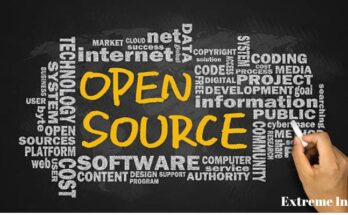The Power Struggle for Online Control: Exploring the World of Internet Governance
The advent of the internet has transformed the world, connecting people globally and revolutionizing communication, commerce, and information dissemination. As the internet has become an integral part of our daily lives, the question of who controls it and how it is governed has gained prominence. This article delves into the power struggle for online control, exploring the intricate world of internet governance.
Understanding Internet Governance
Definition: Internet governance refers to the mechanisms, principles, and norms that shape how the internet is utilized and controlled. It involves various stakeholders, including governments, private sector entities, civil society, and technical experts.
Historical Context
The internet’s early days were marked by a decentralized structure, allowing for open collaboration and innovation. However, as the internet grew in importance, the need for governance became apparent. Organizations like the Internet Engineering Task Force (IETF) and the Internet Corporation for Assigned Names and Numbers (ICANN) emerged to manage technical aspects such as protocols and domain names.
Key Players in Internet Governance
Governments: National governments play a significant role in shaping internet governance policies within their borders. The tension arises when governments seek to exert control over global internet infrastructure.
Private Sector: Tech giants like Google, Facebook, and Amazon exert considerable influence, both economically and politically. Their dominance has raised concerns about monopolistic practices and the impact on user privacy.
Civil Society: Non-governmental organizations (NGOs) and advocacy groups contribute to internet governance discussions, advocating for user rights, privacy, and a free and open internet.
Technical Community: Experts and organizations responsible for developing and maintaining the internet’s infrastructure contribute to governance discussions, focusing on technical standards and protocols.
The Challenges of Internet Governance

1. National Sovereignty vs. Global Connectivity
Governments often grapple with the balance between asserting control over the internet within their borders and maintaining a globally interconnected network. This struggle is evident in instances where governments attempt to regulate content or restrict access for political reasons.
2. Privacy and Surveillance Concerns
As the internet becomes integral to daily life, concerns about data privacy and government surveillance have grown. Striking a balance between national security and individual privacy is a persistent challenge in the realm of internet governance.
3. Cybersecurity Threats
The rise of cyber threats poses a significant challenge to internet governance. Coordinated international efforts are required to address issues such as hacking, data breaches, and cyber-espionage effectively.
4. Digital Divide
The unequal distribution of internet access and resources, known as the digital divide, remains a pressing issue. Bridging this gap requires addressing infrastructure challenges and promoting digital literacy.
Global Governance Models

1. Multistakeholder Model
The multistakeholder model involves collaboration between governments, the private sector, civil society, and the technical community. Advocates argue that this inclusive approach ensures diverse perspectives are considered, fostering a more democratic and open internet.
2. Multilateral Model
In contrast, the multilateral model emphasizes a more centralized approach, with governments taking the lead in decision-making. Proponents argue that this model enhances national sovereignty and allows for more effective regulation.
3. Balkanization
Some governments advocate for a form of internet balkanization, where they can control and regulate the internet within their borders independently. This approach raises concerns about fragmentation, reduced global connectivity, and limitations on free expression.
Recent Developments in Internet Governance

1. Data Localization Laws
Several countries have implemented data localization laws requiring companies to store user data within their borders. This trend raises questions about the impact on cross-border data flow and the ability of multinational corporations to operate seamlessly.
2. Content Regulation and Online Censorship
Governments are increasingly asserting control over online content, raising concerns about censorship and freedom of expression. Balancing the need for regulation with the preservation of open discourse remains a complex challenge.
3. Emergence of National Internets
In response to geopolitical tensions, some countries are exploring the creation of national internets, effectively isolating their citizens from the global internet. This trend poses risks to the interconnected nature of the World Wide Web.
The Future of Internet Governance

1. Emerging Technologies
The advent of technologies like blockchain and artificial intelligence introduces new challenges and opportunities for internet governance. Addressing issues such as algorithmic bias and the ethical use of AI requires a proactive and collaborative approach.
2. International Cooperation
Given the inherently global nature of the internet, international cooperation is essential for effective governance. Collaborative efforts can address cross-border challenges, including cyber threats, data privacy, and the equitable distribution of resources.
3. Inclusive Decision-Making Processes
Ensuring the inclusion of diverse voices in decision-making processes is crucial for effective and fair internet governance. This includes active participation from marginalized communities, ensuring that policies consider the needs of all users.
Conclusion
The power struggle for online control continues to evolve as the internet becomes an even more integral part of our lives. Striking a balance between national interests, individual rights, and global connectivity is a complex task. The future of internet governance depends on the ability of stakeholders to navigate these challenges collaboratively, fostering a digital landscape that is open, secure, and inclusive. As we move forward, it is crucial to address emerging issues, embrace technological advancements responsibly, and uphold the principles that make the internet a powerful tool for communication, innovation, and global connectivity.



